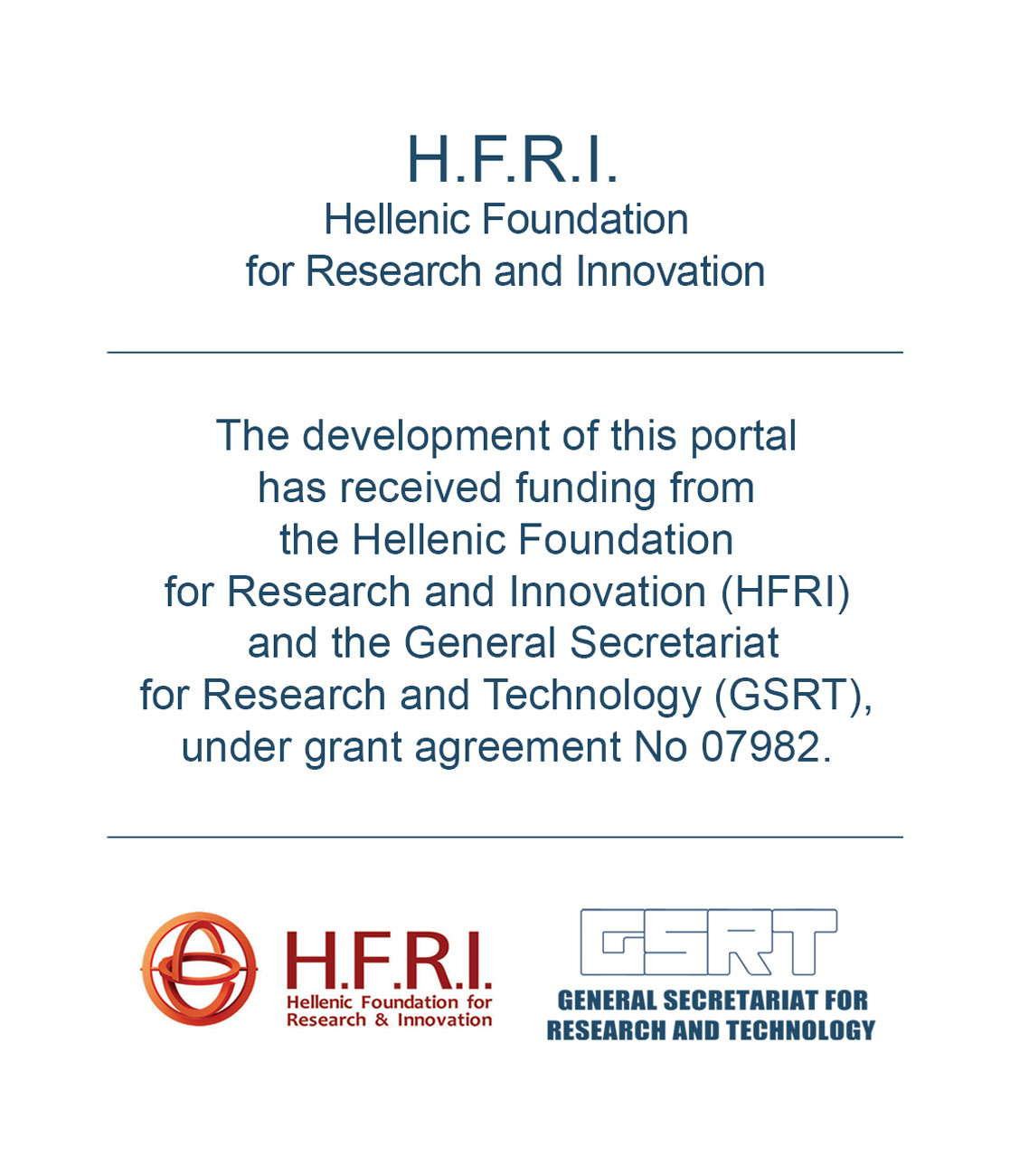APOLLONIS Greek Infrastructure for Digital Arts, Humanities and Language Research and Innovation (poster) (DH2019)
DH2019, Utrecht, July 2019.
APOLLONIS is the Greek national infrastructure for Digital Arts, Humanities and Language Research and Innovation. It brings together the leading strengths and capacities in the field by providing high-level computational tools, interoperable datasets and services. APOLLONIS was recently formed by the union of two existing ESFRI-related national research infrastructures: CLARIN:EL, the CLARIN-related Greek network for language resources, technologies and services; and DARIAH-GR/DYAS, the DARIAH-related Greek network for digital research in the Humanities, creating bridges where commonalities are observed. The development of APOLLONIS is being carried out by a consortium comprising of a number of institutions across Greece: Athena Research Centre (coordinator), Academy of Athens, National Center for Scientific Research Demokritos, GRNET, University of Athens, Institute of Communication and Computer Systems, Athens School of Fine Arts, Foundation for Research and Technology – Hellas, University of the Aegean, and Ionian University.
The development of the APOLLONIS infrastructure advances the existing CLARIN:EL and DARIAH-GR/DYAS services within a common framework that will ensure interoperability and reach to broader user communities, as well as promoting open science principles. CLARIN:EL will provides a permanent, stable infrastructure for accessing language resources and language processing web services, supports all kinds of language-related activities (regardless of subject), and collaborative workspace for application development environment. DARIAH-GR/DYAS provides access to curated digital resources and services for the development, analysis and visualization of data, best practice guidelines, and dissemination and training activities on the use of digital methods and tools in the Humanities. A Digital Humanities Observatory monitors the penetration of digital practices in the Humanities. Establishing a unified, open virtual workspace that will enable access to interoperable digital resources, curation and editing tools, good practice guidelines and support, APOLLONIS allows Greek humanities research and education communities, as well as professionals in the media, culture and tourist industry, to carry out their creative activities more efficiently and less costly. Furthermore, through the CLARIN:EL and DARIAH-GR/DYAS national networks, APOLLONIS continues Greece’s participation to the European infrastructures CLARIN and DARIAH, respectively.
This poster will enable DH2019 audiences to engage with, comment and discuss the four main lines of action of the APOLLONIS infrastructure: 1. Tools and Services: APOLLONIS provides tools and services for supporting the entire life cycle of digital arts and humanities and language resources, including processes of acquisition, creation, documentation, knowledge extraction, analysis, annotation, curation, visualisation and publication of resources at various levels. 2. Resources: APOLLONIS creates, integrates, curates and offers access to digital repositories, registries, text corpora, lexica, thesauri, datasets and metadata, and bibliography. 3. Education and Training: The infrastructure develops and provides training on digital tools, practices, methods and services through a series of events, workshops, seminars and summer schools aimed at researchers, students and professionals. APOLLONIS furthermore offers digital training material such as webinars, tutorials and manuals. 4. Communities of practice: APOLLONIS fosters emerging communities of practice in the digital humanities and language technology. This is effected through sharing tools, services and resources; promoting relevant good practice guidelines and standards; focused training activities; supporting a sustained dialogue on theoretical and methodological trends and approaches, as well as intra- and inter-community interactions.
